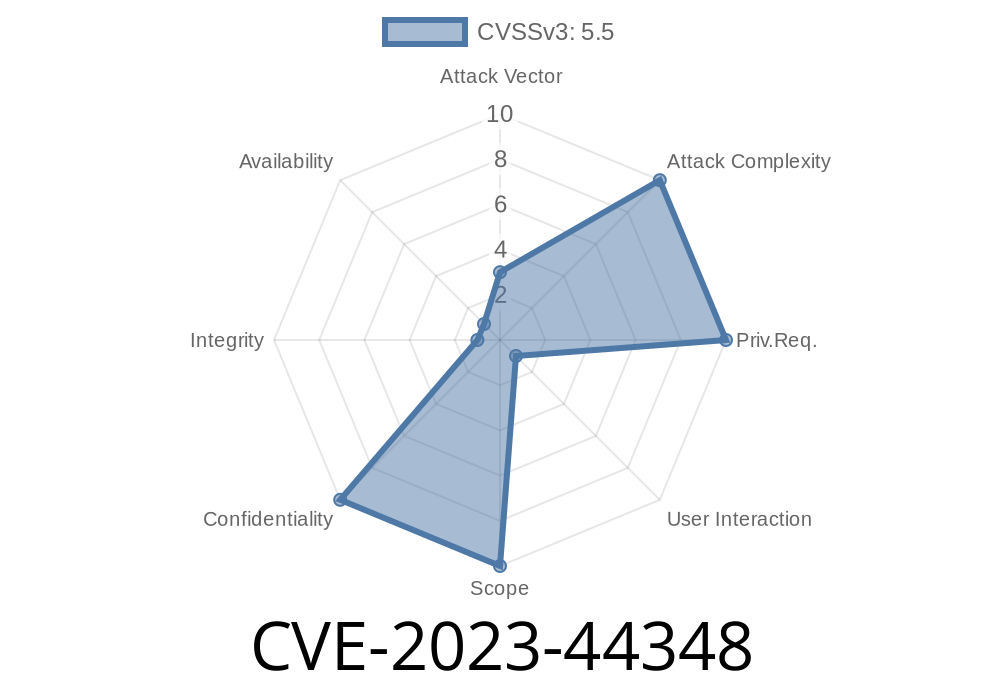In September 2023, security researchers uncovered a serious vulnerability in Adobe Acrobat Reader, tracked as CVE-2023-44348. If you’re using version 23.006.20360 or earlier or version 20.005.30524 or earlier, your system is at risk. This flaw is an *out-of-bounds read* bug, allowing attackers to access sensitive memory that should be protected. Even worse, this bypasses modern defenses like Address Space Layout Randomization (ASLR), which usually keep attackers guessing about where things are in your computer’s memory.
All it takes for an attack to succeed? The victim has to open a specially crafted malicious PDF file.
What Is an Out-of-Bounds Read?
Let’s break this down. When a program like Acrobat Reader wants to read data, it often gets it from an array or buffer—a block of memory. An *out-of-bounds read* issue means it tries to read outside the intended limits of this memory block. If a hacker can control that buffer, they can trick the software into reading other parts of your memory—potentially leaking passwords, private documents, or even security tokens.
User Interaction: The victim opens this file in a vulnerable version of Acrobat Reader.
3. Trigger the Flaw: Acrobat tries to process the file. But instead of reading safe data, it reads information outside expected memory ranges—possibly leaking data to the attacker.
Why Is This So Dangerous?
- Bypasses Memory Protections: The vulnerability can be used to defeat ASLR, making it much easier for hackers to launch further attacks, like Remote Code Execution (RCE).
User Targeted: All an attacker needs is to convince you to open their PDF.
- Data Disclosure: Anything in the exposed memory could be grabbed. You could lose passwords, personal emails, or cryptographic keys.
Exploit Example (Pseudo-Code)
Below is a simplified example showing how such a bug might be exploited. In a real attack, things are much more complex, but this gives an idea.
// Vulnerable buffer processing in PDF parser (fictional and simplified)
void parse_pdf_object(char *buffer, int length) {
char local_copy[100];
// An unchecked copy - what if buffer is larger than 100 bytes?
memcpy(local_copy, buffer, length); // Potential out-of-bounds read
// Processing local_copy...
}
If the attacker’s PDF crafts a field so length is larger than buffer or the local_copy, this causes memcpy to read outside memory boundaries, leaking info.
A proof-of-concept (for research, not crime) could be a PDF that declares a field size much bigger than the data, pointing the parser off-limits.
% PDF-1.5
1 obj
<< /Length 200 >> % Overflow length triggers out-of-bounds read
stream
[Malicious payload data]
endstream
endobj
Adobe has released patches to fix this vulnerability, urging users to upgrade immediately
- Security Bulletin APSB23-34
- CVE Entry
How to Protect Yourself
- 🚨 Update Acrobat Reader: Make sure you use the *latest* version. Download directly from Adobe: https://get.adobe.com/reader/
Further Reading
- Original National Vulnerability Database entry — CVE-2023-44348
- Adobe’s Patch Advisory (APSB23-34)
Conclusion
CVE-2023-44348 is a critical vulnerability that could allow attackers to steal sensitive data and set up even more devastating attacks. Always update your software and don’t open files from unverified sources. Staying vigilant—especially with something as common as PDFs—keeps you and your info safe.
*Exclusive for security enthusiasts and IT staff. Feel free to share with your team to help build awareness!*
Timeline
Published on: 11/16/2023 10:15:12 UTC
Last modified on: 11/22/2023 17:15:18 UTC
